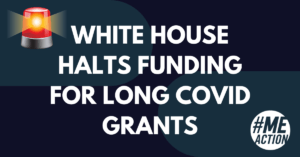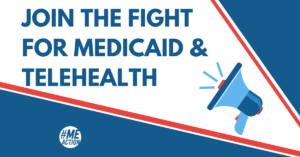It’s been a devastating summer for the ME community. We have lost Jodi Bassett, Louise Ramage, Tink Bastian, and Linda Hayes Burke. Yesterday, we learned that we lost Tom Jarrett.
Jodi Bassett, 41, was a passionate advocate for ME who helped thousands of people better understand their condition through her website The Hummingbirds’ Foundation for M.E., and through the books she authored. She was a relentless fighter who advocated from her bed much of the time.
Louise Ramage of White Rock, British Columbia, Canada, also passed away this June. Her daughter, Leeanne St. Cyr, wrote on her own Facebook page, “She would want me to tell you about her disease ME… this took her life.”
Christine (Tink) Bastian of Portland died June 23, 2016 at age 64, after a long illness. Bastian was a Dutch expatriate and former graphic artist who had been ill with ME since 1970. She and her husband, Waldo (Zogje), had two children, Lydia and René, and two grandchildren.
Linda Gayle Hayes Burke, of Ozark, Alabama, died of a heart attack at the age of 68. She is survived by her husband of 50 years, James; her daughters, Lisa and Sherrie; her son, Donald; seven grandchildren; and three great grandchildren.
Yesterday, we learned that ME advocate Tom Jarrett committed suicide. Tom, a former estate and certified financial planner, helped to organize a protest against the Pathways to Prevention Workshop at the NIH in 2014. About his protest at the NIH, Tom said, “There is so much at stake here for my family and for the ME community. Will the P2P meeting and resulting report result in decades more of neglect, while my sons grow up without a healthy father, and patients with ME suffer and die, saddled with a vague disease definition, a trivializing name, and no hope of a cure? I don’t think so, because we patients will keep fighting until the NIH stops and truly listens to our voices.”
Tom ceased advocacy efforts when his chronic pain became too severe for him to continue. He is survived by his wife and two young sons.
These deaths after years of chronic illness underscore the need for better research and better medical care for people with ME. If you agree, spread the word about ME, help us protest the lack of funding and dismal state of medical education in ME via #MillionsMissing, or make a donation to help fund the community effort.
If you or a loved one has been considering suicide, please call the U.S. National Suicide Prevention Lifeline, at 800-273-TALK. For crisis hotlines in your area, please consult this list.
Are you a writer or a contributor to a publication, online or otherwise? Please read this.
Darla N. and Adriane T. made significant contributions to this article.

White House Halts Funding for Long COVID Grants
The White House is terminating funding for NIH RECOVER grants awarded in 2022 and 2023 for Long COVID.




11 thoughts on “Our losses in the ME community”
I feel as tho my life isn’t for me. If I were a cat, the vet would have told us “the kindest thing to do is to let her go.” Unfortunately I’m human so I’m left in my dark room to suffer, so that those around me don’t have to deal with loss. However I’m forced to recognise it daily. This isn’t life……….
Amanda,
Thank you for your comment. When I was writing this article, I discussed the content with several others. It prompted some conversations about life and loss that affected me deeply.
I look at how far we’ve come, just since I became acutely ill: we now have multiple new tests proposed as diagnostic tools (Stanford, the Griffith researchers), the cytokine study that shows distinct patterns in cytokines in early-onset vs chronic ME, Dr Davis has found markers of energy metabolism dysregulation that serve to demonstrate without a doubt that ME is not some form of depression.
On the advocacy side of things, we have met with the NIH and HHS to talk about how to get more funding for ME researchers. We have had the #MillionsMissing protest in 12 locations all over the world, which has led to dozens of meetings with congress and congressional staffers as well as increased media coverage, and today at 4pm we will release some very encouraging news.
I do believe we have far to go, or I would not be in advocacy, and I believe the right tests and treatments will not come along on their own. I also understand that progress *cannot* come fast enough for those who are trapped in their beds and in pain. But we continue to move forward, together. Please be here for the day that we find a diagnostic test, or series of tests that really identifies PWME. Please be here when the FDA approves the first drug that makes a real difference in our lives. Please be here the day we find the cure.
I am so saddened to hear of even more losses from our M.E. community! I applaud all efforts to save life, especially the lives of all of us with M.E. suffering at the severest levels. Sadly, until M.E. is accepted into the “canon” of what is classified as a real, bio-medical disease, and not kept relegated to “hysterical” conditions, politely termed “psychiatric diseases”, turning to a suicide hotline comes with its own very real survival risks for a severe M.E. patient, including that of being thrown into a psych ward, and becoming cut off from any meager palliative care they may have fought valliantly to have in place in order to survive long enough to – please oh please – benefit from legitimate research and subsequent medical treatment to ease their extreme medical suffering levels to more bearable disability levels.
This is why #MEAction, #MillionsMilling, OMF and the like are SO appreciated and URGENTLY ESSENTIAL. And this is why I – a severe ME patient of nearly 16 years with no real medical help, much less understanding, that would lead to at LEAST some palliative care to count on for help – send my so-small-it-may-seem-insignificant donations to these organizations, and use the few flat-in-bed-writing-on-my-darkened-laptop minutes/day my M.E. allows me to participate in things like the #MillionsMissing campaigns. And I know I’m only one of MANY severe M.E. patients doing the same.
We are fighting for our own lives by donating and being “activists” despite realizing help may not come in time for those of us who have been suffering dozens of years at the severe M.E. level. Why??? Not just because WE WANT TO LIVE(!!!), but because, even if help cannot arrive in time for us, we will be damned if we allow the next generation(s) of those who will come down with M.E. to be condemned to living through the YEARS of HELL we have had to live through!
Here’s to the brave warriors we have lost, and the valliant fight they waged to survive, and to help us survive. We will HONOR YOU by continuing to fight, and by holding the your memory in our hearts!
Kandice,
I believe suicide hotlines are still a very important aspect of care, even though they are a last resort. Whoever picks up the phone doesn’t have to be skilled in understanding ME or interpreting ME as a psychiatric or a non-psychiatric illness; they hear from patients who are very physically ill often.
I wish it were possible in all countries to simply say “I have ME” and have that be understood in the same way as “I have MS” or “I have Parkinson’s”. Until that day, I would say to someone, “I am so sick that I am miserable. My poor health means I am suffering terribly.” People trained to answer crisis lines understand this, even if they have never heard of ME or view it through a jaundiced eye.
This does sadden me so. The loss of these people, Jodi especially, is poignant as I had emailed with her and loved her artwork and her website on M.E. is a masterpiece. To all of you, all of us who suffer, scorned by most of the medical community, don’t lose hope cause change is roaring around the corner. I can feel it. This disease won’t be in the dark for much longer. Fantastic minds, researchers, are working on this and they WILL find evidence that will FORCE the, well what other words can one use but diabolically stupid medical professionals (I almost choke at having to say “professionals”) to backpedal on their insidiously ignorant position of disdainful disbelief of the reality of this disease. I am going to stay alive till then and far after that moment in time when the evidence is revealed just so I can mash it their fat, prejudice, stupid faces. Yes, Yes I am. It will be a sweet, sweet moment when this happens. Everyone, be around for it for then we can celebrate and the joy and energy from that will lift us all! I send you all love, today and always.
Thank you for your comment, Summer. I too benefited from Jodi’s work: her book on Caring for the ME patient is one of the first books on ME I ever owned, and I read it cover to cover. She will be missed.
Summer,
Thank you summer for your positive thoughts & Sharing hope to so many of us who feel hopeless. It has lifted me and given me things to look forward to. Can’t wait to mash it in many stupid unsympathetic faces
Amanda,
I understand how you feel and will keep you in my prayers. Hope you may find joy in little things and something to smile about each day. Take care
That’s the spirit, Amanda! Yep, change is a comin’!
The doctor who is willing to schedule an appointment for you – after you rigorously confirm he understands ME over the phone prior to committing to an appointment – then smirks at you when you come for your appointment and tells you there’s something wrong with you mentally, and that the only thing he can do is recommend you to a psychiatrist or psychologist because together with the all the normal labs you’ve had for the past 30 years, the symptoms you are describing aren’t anything anyone with a REAL illness would have. Yes – I can’t wait to mash something into THAT smirky-smug doctor’s face….IN A COURT OF LAW WHERE I SUE HIM FOR MALPRACTICE
Exactly.
What is most important for patients’ credibility is to make the public understand that ME in fact does take lives. It is not just something you live with it is something you die from. Maybe once this sinks in we’ll finally be taken seriously.
Comments are closed.